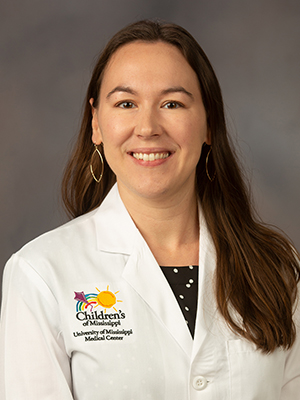Take precautions against measles
Editor's Note: This story was updated on April 15, 2024.
Physicians in other states are seeing an old disease, measles, for the first time.

“There have been recent reports of measles outbreak in several states,” said Dr. Roberto Santos, professor and chief of pediatric infectious diseases at Children’s of Mississippi. “Medical providers in Mississippi need to be vigilant in identifying children with signs and symptoms of measles because it is a very contagious disease.
Measles may be unfamiliar to physicians as well as parents because the disease was eradicated in the U.S. by 2000 through vaccinations.
The measles vaccine was developed in 1963, and vaccines for mumps and rubella were available starting in 1967 and 1969, respectively. By 1971, the three vaccines were combined in the MMR vaccine, given at age 12 to 15 months and again at 4 to 6 years of age.
However, measles still existed in other parts of the world. Declining rates of vaccination in America opened the door for the highly contagious virus to spread again in the U.S. Developing herd immunity for measles requires a high level of vaccination across the population.
By April 11, a total of 121 measles cases were reported across 18 jurisdictions: Arizona, California, Florida, Georgia, Illinois, Indiana, Louisiana, Maryland, Michigan, Minnesota, Missouri, New Jersey, New York City, New York State, Ohio, Pennsylvania, Virginia and Washington. In 2023, 58 cases of measles were reported to the U.S. Centers for Disease Control and Prevention across 20 jurisdictions.
It is likely that many medical students and physicians have never seen a case of measles, Santos said, so knowing the symptoms of the virus is essential for pediatricians and primary health care providers.
“In unvaccinated children, measles may present with cough, conjunctivitis (pink eye), Inflammation of the upper respiratory system and fever,” Santos said.
The need for health care providers to know how to treat patients with measles prompted the CDC to send an alert Jan. 25, recommending that physicians keep any patients with suspected measles separate from other patients, test for the virus and report any suspected cases of measles to the CDC and state health departments.
Mississippi has no reported cases of measles, but a trip to another state with an outbreak could result in a case here, Santos said.
“We cannot over emphasize the importance of vaccination," Santos said. “Some children may develop complications like croup, pneumonia and acute encephalitis (an infection of the brain that can cause long-term brain damage) in rare cases. Case-fatality rates may be higher in children younger than 5 and immunocompromised patients.”
The MMR vaccine contains weakened forms of the viruses that cause measles, mumps and rubella. For the vaccine to work, the viruses must multiply to create an immune response. Newborns’ natural protections against illness wear off as they grow older, so the first dose of MMR is recommended after a baby’s first birthday because the dose is more effective then.
Children between 12 months and 12 years old can receive the MMRV vaccine, which protects against measles, mumps, rubella and varicella, or chicken pox.

Dr. Megan Hamner, assistant professor of pediatric infectious diseases, said children too young to receive the MMR vaccine depend on those around them to be protected.
“The best way to protect younger babies from measles is to ensure all caregivers and other family members around the young infant have been vaccinated with MMR to provide herd immunity,” she said.
Two MMR doses are up to 97% effective in preventing measles, which is highly infectious.
People with measles can be contagious four days before any symptoms show. After the first symptoms, a facial rash will develop and spread to the rest of the body. Some children with measles will also get ear infections and could also develop pneumonia. The measles virus can live for two hours on a surface or suspended in the air.
According to the American Academy of Pediatrics, one to two of every 1,000 children who get measles die from the virus or its complications. Nearly one out of every three children younger than 5 who catches measles will need hospitalization. When contracted in pregnancy, measles can harm unborn children, causing premature birth.
Anyone born before 1957 is considered immune to measles, and those who have received two doses of measles vaccine as children are considered protected from the virus for life. No booster doses are needed.
The above article appears in CONSULT, UMMC’s monthly e-newsletter sharing news about cutting-edge clinical and health science education advances and innovative biomedical research at the Medical Center and giving you tips and suggestions on how you and the people you love can live a healthier life. Click here and enter your email address to receive CONSULT free of charge. You may cancel at any time.



